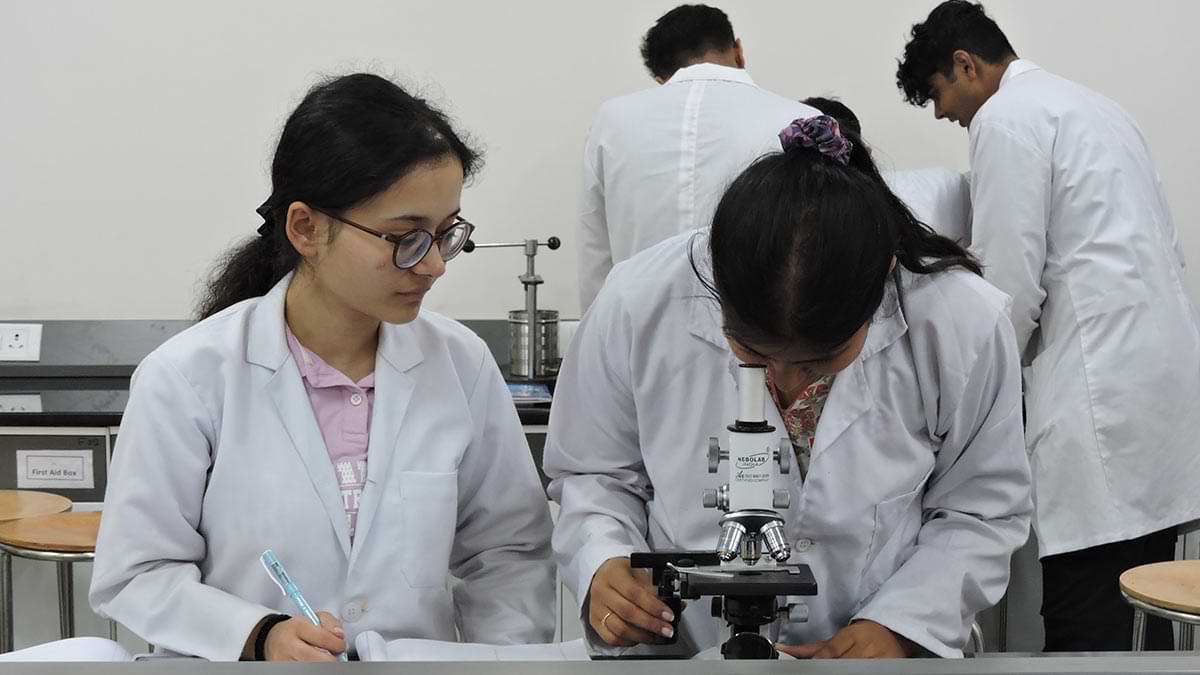[ad_1]

Drug dosage form refers to the form in which a drug is marketed – solid, semisolid or liquid. UPES’ world-class pharmaceutics lab is fitted with some of the most advanced equipment to teach drug dosage forms to students.
A central aspect of pharmaceutical studies is to understand drug dosage forms. Drug dosage form refers to either the mode in which the drug is delivered to the body – oral, topical, inhaled, etc. – or the form in which the drug is marketed – tablet, syrup or capsule.
Students of Pharmacy at UPES learn all this and more at the university’s world-class Pharmaceutics Laboratory. The lab is fitted with some of the most advanced apparatuses and equipment to give a hands-on learning experience to Pharmacy students.
These include in vitro dissolution apparatus, in vitro tablet disintegration apparatus, 10 station rotary tablet compression machine, automatic capsule filling machine, liquid filling machine, friability testing apparatus, tablet hardness tester, viscometer, tablet coating pans, UV spectrophotometer, infrared spectrometers, thermal gravimetric analysis, X-ray diffractometers, HPLC, and Raman spectrophotometer, among others.
Students are given practical training sessions in the lab to guide them through the key unit operations of the formulation process of various solid and liquid dosage forms, as well as end-product testing and quality control.
Vaibhav Pandey, a 3rd Year student of B.Pharma., says that the sessions in the Pharmaceutics laboratory helped him to learn the fundamentals of conversion of drugs into dosage forms.
“There are numerous dosage forms available – tablets, capsules, emulsions, parenterals etc. The lab not only provides information on different dosage forms but also why a particular dosage form is designed for a particular drug administration route,” Vaibhav says.
His batchmate Anshuman Tripathi shares his excitement.
Describing the experience of formulating his first tablet, Anshuman says that he felt incredible as he and his teammates created paracetamol tablets and labelled them, marking the ingredients list and storage instructions.
Anshuman says that he feels “fortunate to be a part of UPES as the university focuses on practical learning concepts to prepare students for careers in various pharmaceutical fields”.
The Pharmaceutics Laboratory course is led by four faculty members: Dr Rajendra Awasthi whose research specializes in nano- and micro- drug delivery systems, pharmaceutical formulations, preclinical pharmacokinetics, novel drug delivery systems; Dr Prashant Shukla who specializes in drug delivery systems and nanotherapeutics, solid state characterization, polymorph and salt screening, preformulation, formulation development, and preclinical pharmacokinetics; Dr Gunjan Bonde whose interests lie in pharmaceutical product development and optimization, novel drug delivery systems, enhancement of drug solubility and pharmacokinetics and biodistribution, and Dr Deepika Sharma who explores peptides and peptoides synthesis, conventional and novel drug delivery systems, green synthesis of metal oxides, preclinical pharmacokinetics and nanotherapeutics.
To know more visit – https://www.upes.ac.in/
Note: The article is written by the Brand Desk.
[ad_2]
Source link
